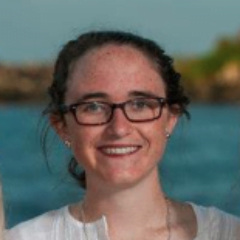Editor’s note: This is the second post in the BoringEM Research Week series. We had the fortune of hearing from three star medical students who are actively involved in research while also fulfilling the requirements medical school. Needless to say they have some great tips for how to succeed in medical student research. – EP
Daneilla Dmitri and Alvin Chin’s Tips for Finding and Finishing the Right Project
From experience Daneilla (@D_Dimitri88) knows all about finding the right research project and with two years of graduate research experience and an undergraduate thesis in his back pocket, Alvin (@AylC1989) is well-suited to share tips on how to complete a project. Here are their tips for medical students looking to get involved in research!

Daneilla’s research explores the intersection of anonymity and professionalism in the context of online medical education.
- Self-reflect. Don’t do a research project for the sake of doing one. Many students rush into a research project to get involved early. Think hard about your reasons for doing research while in medical school. Is it for interest? To sweeten your CaRM’s application? To network? It’s important to reflect on this, research can take quite bit of your time and you need figure out how dedicated you want to be (and can be) to it! This is a very important first step before involving other parties (mentors) who will be investing time and energy working with you.
Note: Though a lot of residency applicants have research experience, there are many more ways you can differentiate yourself as a candidate in CaRMS! Find something that truly interests you and go for it! It doesn’t have to, and shouldn’t necessarily, be research.
- Take your time. Beware of the plentiful research opportunities that come your way. As a medical student, you will be receiving lots of offers to help supervisors, residents and other students. You DO NOT have to respond affirmatively to every offer, there will always be another opportunity to participate. Take your time deciding the field of study you are interested in.
- Do some homework. Research will take up a fair amount of your time and energy. Make sure you know exactly what you are getting yourself into i.e. your role, expectations and timelines of completion. Many students are shy to ask but figure out what’s in it for you. Ask about possible authorship, publication and the possibility of conference attendance. Research responsibilities can range from simple data collection to primary authorship/investigation. The more involved you are the more likely you will learn about research/writing techniques, the research application process and how to lead a team.

Alvin’s research focuses on the use of podcasts in undergraduate medical education.
- Creep your supervisor. Finding the right research mentor is just as (if not more) important than finding the right project for you. If you are truly interested in research, especially research that involves primary authorship, your research mentor should be able to help you through this! Sit down with your mentor and have a frank discussion about expectations and goals i.e. Who is leading this project? What role will you be playing throughout this process? What are their expectations regarding learning goals? Are there resources/tips they can give you to help with data collection and statistics? How much do they micro manage? How much guidance do they provide? How available are they for you to contact/meet? What kind of timeline are they looking at for the project? Do they have other students in working on projects with them? Most importantly, after the meeting, think about whether or not the answers to these questions match what you’re looking for out of this experience. A research project is not just a means to an end.
A good supervisor + an interesting project = a rewarding experience
- Establish a timeline for yourself. Alright so now that you’ve found a research mentor and developed a project you have to figure out how to complete it! If your supervisor gives you short deadlines, this may be all laid out for you, but most of the time, it may be more important for you to organize what you want to get done by a certain time. You will be the only one who knows your schedule and the only one who will care. Certain rotations may be more busy than others. Leaving open deadlines and not thinking ahead may force you to extend the project longer than you had hoped.
- Break your workload into parts. For some people, sitting down for a 6 hour writing session may work. But, in my experience, it’s the opposite that works. For this, I like to use the analogy of doing dirty dishes. Doing dirty dishes built up over 4-5 days all at once may be more efficient. However, how many times have you looked at a sink full of dirty dishes and thought to yourself: “Maybe I’ll just leave it for one more day…”. With a research project, the good part is that it doesn’t end up smelling, but that also results in you failing to realize how much you put it off. Breaking it up into parts helps you to give yourself more opportunities for instant gratification, a feeling of productivity, and a reduced sense of the actual load of the work.
- Finally, don’t be afraid to ask for help. At times you may realize that you’ve taken on a bit more than you can handle. At other times it may be just a surprisingly busy elective or rotation that put you behind schedule. Trying to do everything on your own while stressed may result in lower quality of work or poor self care. Ask for help if you need it. You’ve chosen an amazing supervisor who understands that these things happen (see #2). They will be more understanding of you going to them explaining your situation than reading your less-than-impressive work because you rushed to finish the night before.
Izzy Colmers on Bringing Something to the Table
Izzy (@izzycolmers) had the advantage of entering medicine after completing a research Master’s in Epidemiology. She is passionate about research and even thought about pursuing PhD studies before medical school.

Izzy has a diverse research portfolio with projects on everything from the incidence of H. Pylori in rural populations to professionalism in medical students after hours!
With this background she brings a skill set to the table but regardless of your background you bring something to the table too. It may be “sweat equity” as described by Dr. Andrew McRae or it may be experience with a specific type study design. Whatever it is, figure out what you have to offer as a research collaborator, because that is what you are. Izzy describes her sometimes awkward experiences with being a medical student collaborator.
“Three of the research projects I worked on in medicine involved collaborating with a physician who had the content expertise, whereas I had the methods expertise. It was really fun getting to work with a physician in a context where I was contributing something meaningful. The biggest challenge of this working dynamic was that at times I felt like I was doing a delicate dance between validating the suggestions of my superiors (and, let’s face it, potential CaRMS references), and my own opinions of how to best proceed with our project or what methods to use. Through this I learned a lot about how to have a positive and objective debate about ideas, which will hold me in good stead in clinical medicine too! My research experience as a medical student has been overwhelmingly positive and fruitful. I feel lucky to have the mentorship of these physicians and have been surprised and impressed by the amount of support I’ve been offered throughout the research and publication journey.”
The Bottom Line
Izzy suggests you should:
- Do research because you are genuinely interested in a project/topic – and not simply to boost your resume
- Find a mentor who you ‘jive’ with in terms of personality, outlook and goals
- Expect to do all the grunt-work if you want credit
- Don’t forget that you bring something to the table
- Stay curious, stay nerdy, stay keen.
If you have any questions about medical student research please post below to hear from this awesome crew of Rising Research Stars.



